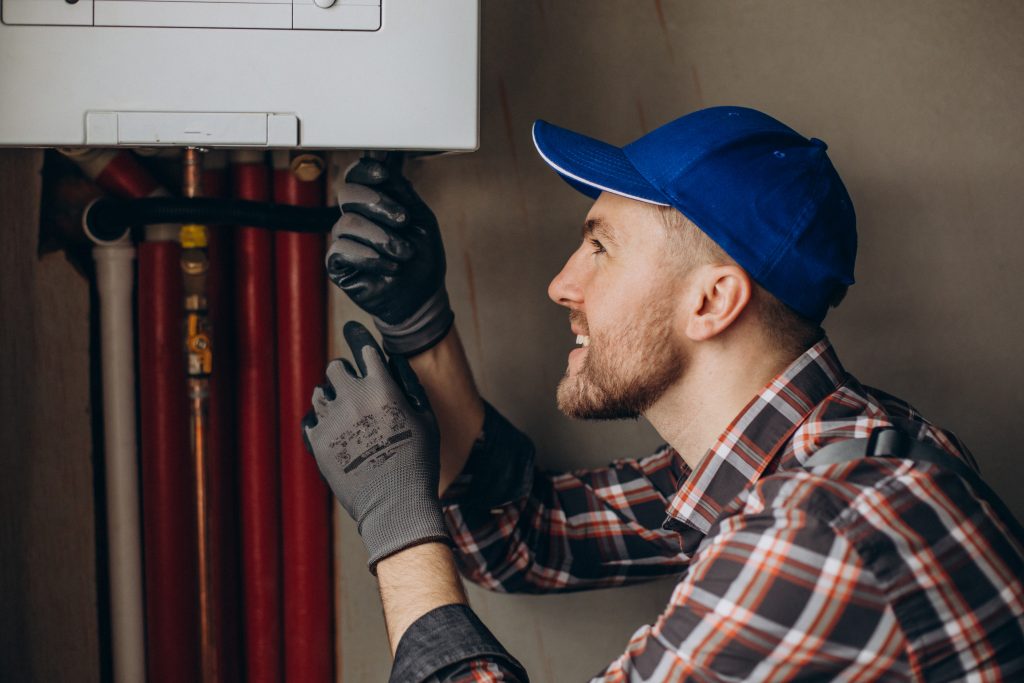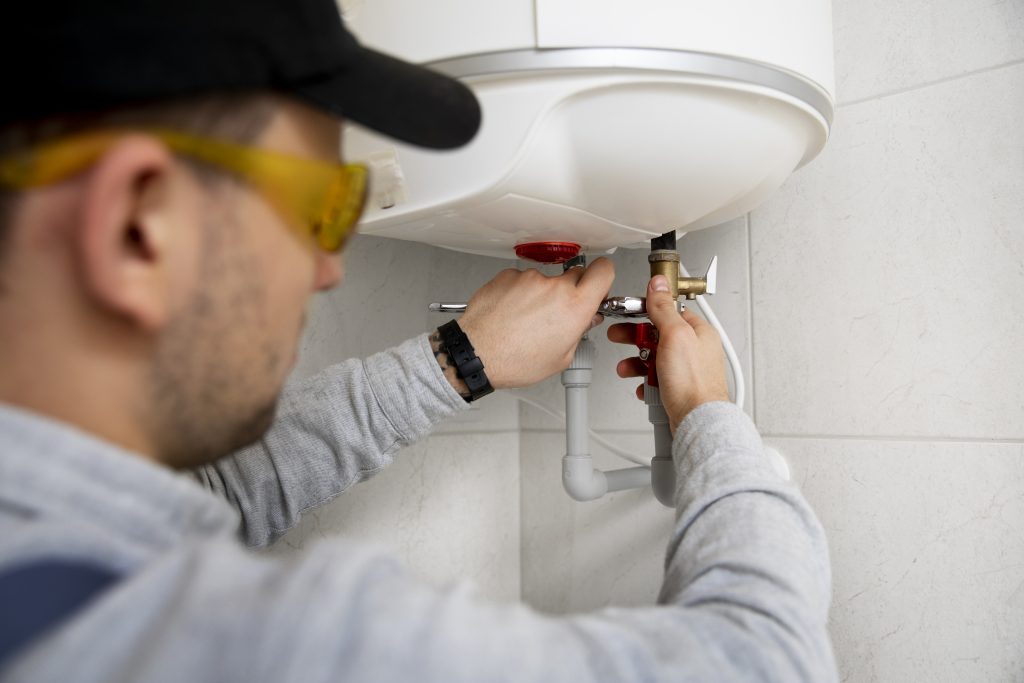
When your water heater service is due, do you really know what you’re paying for? It’s one of those home maintenance tasks most people ignore until there’s a cold shower or a leaking tank. But knowing what a proper service should include can save you money, improve efficiency, and even extend your heater’s life by several years.
Below, we’re breaking down exactly what a water heater service includes, how often it should be done, and why skipping it could cost you more than you think.
What Is a Water Heater Service?
A water heater service is a professional inspection and maintenance routine designed to keep your water heating system operating safely and efficiently. Whether you have a gas, electric, or tankless unit, this service covers all the essential components that ensure hot water is available when you need it.
Why Is Water Heater Maintenance Important?
- Increases efficiency: Sediment build-up makes your system work harder and consume more energy.
- Reduces risk of leaks: Small cracks and faulty valves can be spotted early.
- Extends lifespan: Well-maintained heaters can last years longer.
- Improves water quality: Dirty tanks = rusty or foul-smelling water.
- Protected warranty: Many manufacturers require regular maintenance for warranty claims.
What Does a Full Water Heater Service Include?
Here’s what a complete water heater service checklist usually looks like:
- Drain and Flush the Tank
Sediment and mineral deposits build up at the bottom of your tank over time, reducing efficiency and damaging components. Flushing clears these out. - Inspect the Anode Rod
This sacrificial rod attracts corrosive elements. If it’s worn out, your tank will rust from the inside out. - Test the Temperature & Pressure Relief Valve (T&P Valve)
A malfunctioning valve can lead to dangerous pressure build-up. It’s a vital safety component. - Check for Leaks or Corrosion
Any signs of moisture, rust, or mineral buildup around fittings, valves, or the base of the tank could indicate a pending failure. - Examine the Burner Assembly (Gas Heaters)
The burner should have a clean, blue flame. Any yellow tipping may indicate improper combustion or gas supply issues. - Clean the Air Intake Filters (Tankless Models)
Dust and debris can clog the air intake, reducing performance or causing system errors. - Inspect Electrical Components (Electric Heaters)
This includes checking the heating elements, thermostat, and wiring connections. - Test Water Temperature Settings
Ideally, water heaters should be set at 120°F. Higher settings may scald; lower ones could lead to bacterial growth. - Review System Efficiency
Based on age, performance, and condition, technicians can tell you whether a repair or replacement is more cost-effective. - Check for Code Compliance
Older units may lack essential safety upgrades or venting requirements.
How Often Should a Water Heater Be Serviced?
Most experts recommend an annual water heater service for both tank and tankless units. In areas with hard water, service might be needed every six months to prevent mineral build-up.
How Long Does a Water Heater Service Take?
A standard water heater service typically takes about 60 to 90 minutes, depending on the condition and type of unit. If major issues are found, it could take longer.
Is It Worth Paying for a Professional Water Heater Service?
Absolutely. While DIY maintenance like flushing your tank can help, only a licensed technician can thoroughly inspect and repair components safely and according to local plumbing codes. A small service fee today can prevent a thousand-dollar replacement tomorrow.
Signs Your Water Heater Needs Servicing
- Water takes longer to heat
- Strange noises like rumbling or popping
- Rust-colored or foul-smelling water
- Leaks or puddles near the base
- Water pressure issues
- Increased utility bills without explanation
If you’re experiencing any of these, schedule a water heater service immediately.
What Type of Water Heater Do You Have?
Different units require different servicing steps.
- Tank Heaters: Need regular flushing and internal inspection.
- Tankless Heaters: Require descaling and filter cleaning.
- Hybrid Heaters: Combine heat pump technology with electric elements and need specialized service.
Regardless of type, every unit benefits from a consistent water heater service routine.

Can Water Heater Service Improve Energy Efficiency?
Yes. A clean, well-maintained heater uses less energy to produce the same amount of hot water. Over time, this can significantly lower your monthly utility costs.
Can You Perform Water Heater Service Yourself?
You can flush the tank or adjust temperature settings, but internal components and gas-related inspections should be left to a licensed professional. Tampering with the system could void the warranty or pose serious safety risks.
Conclusion:
If your unit is more than 10 years old, needs frequent repairs, or your technician finds rust inside the tank, replacement may be the better option. Your water heater service appointment is the best time to evaluate this.
Before the winter season starts. Cold temperatures increase the workload on your unit, so getting a water heater service in the fall can prevent breakdowns during peak usage months.
Frequently Asked Questions
How do I know if my water heater needs service?
If your water takes too long to heat, makes noise, or leaks—those are strong indicators that service is overdue.
How much does a water heater service cost?
Costs vary by region and unit type but generally range between $100 to $300.
How often should I flush my water heater?
Once a year is standard, but every six months is ideal in hard water areas.
Can I still get service if my heater is very old?
Yes, but a technician may recommend replacement if the unit is inefficient or unsafe.
Does tankless water heater service differ from tanked units?
Yes. Tankless models need descaling and cleaning of filters and sensors.
Will water heater service improve hot water pressure?
Yes, if sediment buildup is restricting flow, flushing the system can restore pressure.
What happens if I skip water heater service?
You risk premature breakdowns, higher energy bills, and even water damage from leaks.
Can water heater service help prevent scalding?
Yes, by ensuring the thermostat is set to a safe temperature (usually 120°F).
Should I turn off my heater before a service?
Yes. If you’re performing basic maintenance yourself, turn off power or gas and allow it to cool.
Is water heater service covered by home warranty?
Some warranties include annual maintenance. Check your specific plan details.
For more information, visit: Time Business News

